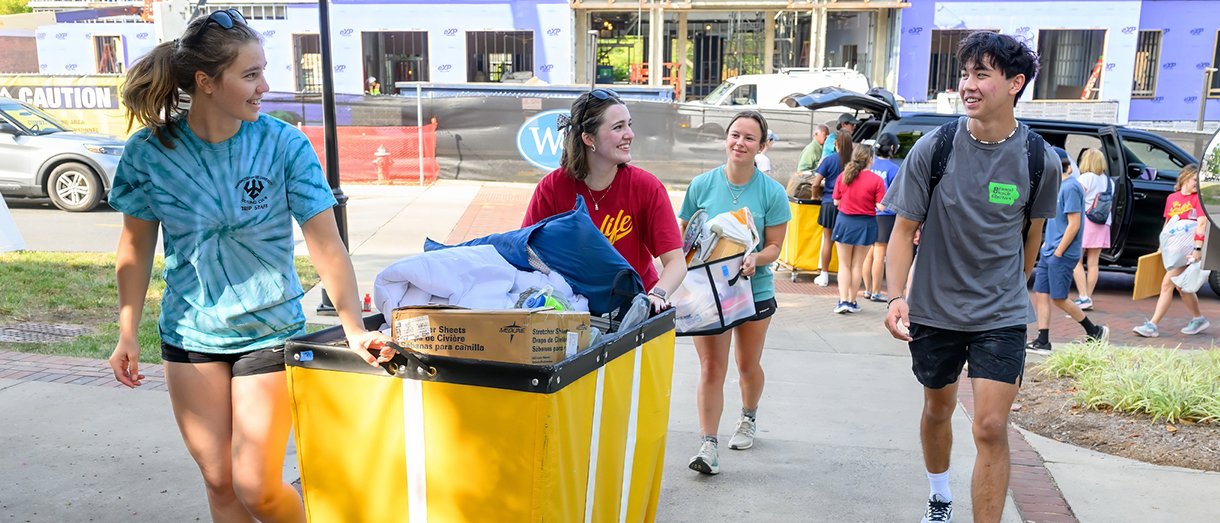
Residential Experience Model (REM)

Mission
The Office of Housing & Residence Life fosters respectful and safe living environments that are conducive to a student’s holistic growth and well-being, their sense of belonging, and the University’s tradition of honor. Students actively engaged in their residential experience will be afforded growth and well-being opportunities that support self-discovery, citizenship, and future planning.
Assessment
Community Assistants (CAs) and Resident Advisors (RAs) use the Residential Experience Model (REM) to plan, implement, and evaluate growth opportunities (e.g., community meetings, programs, etc.). CA/RAs are strongly encouraged to garner feedback from their residents and use that feedback for completing required program evaluations. This data is compiled and reviewed annually to justify and/or tweak the learning goals in pursuit of meeting residential student needs and interests.
The following are three learning goals and relevant outcomes that are connected to Residence Life’s mission and educational priority.
Self-Discovery
A student’s process of understanding who they are as individuals. Students identify their personal values and beliefs as well as engage others about their values and beliefs. Students articulate learning through this process by explaining how their personal values and beliefs are established, how they may evolve over time, and how they may influence personal/professional goals.
- Students will be able to:
- Describe their personal beliefs and values.
- Identify personal experiences that have shaped their beliefs and values.
- Explain how their personal values and beliefs will assist in future planning.
- Evaluate any change to current values or beliefs.
Potential well-being dimensions include, but are not limited to: creative, emotional, physical, and spiritual.
Citizenship
A student’s awareness of civic engagement and current affairs that affect the campus, local, state, and global communities; and the need to foster respectful and safe communities. Students exhibit learning by engaging in civil discourse, recognizing commonalities, embracing differences, and contributing to the communities to which they belong.
- Students will be able to:
- Identify issues affecting their communities.
- Engage others in respectful dialogue.
- Reflect on their individual role as part of a larger community.
- Develop meaningful relationships.
Potential well-being dimensions include, but are not limited to: environmental, social, and digital.
Future Planning
A student’s process for developing realistic and attainable goals. Students exhibit learning by understanding the importance of short-term versus long-term goal planning, articulating experiences in pursuit of future goals, and developing plans for achieving personal and professional growth.
- Students will be able to:
- Describe their personal interests and career aspirations.
- Identify realistic short-term and long-term goals.
- Seek and participate in meaningful experiences that align with interests/goals.
- Explain their plan of action for continued growth.
Potential well-being dimensions include, but are not limited to: intellectual, financial, and career.
Hannah Phillips, Ed.D.
Associate Director of Housing and Residence Life
Chris Reid, Ed.D.
Assistant Dean and Director of Housing and Residence Life
- P: 540-458-4070
- E: creid@wlu.edu